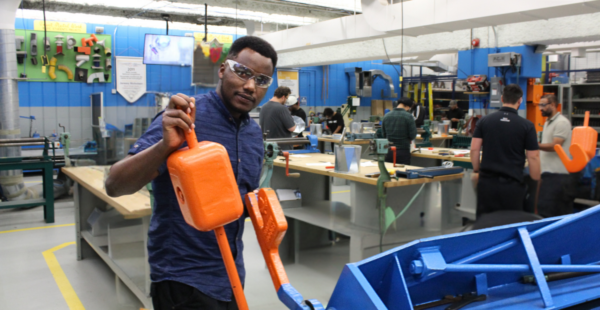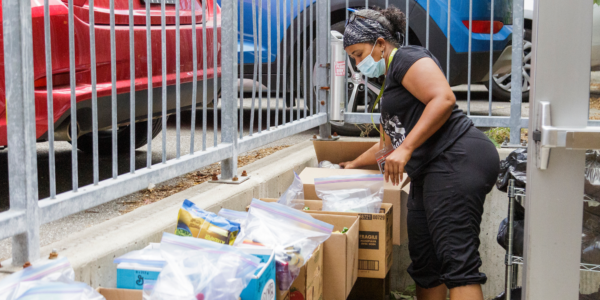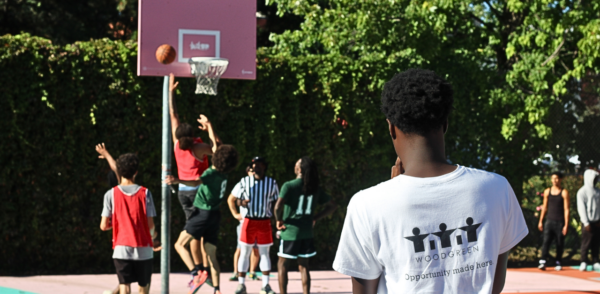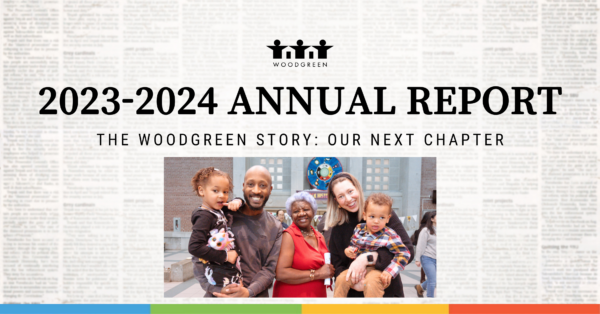Gabriella Williams couldn’t see her way to a better life. Something large and looming blocked her path. The obstacle – invisible to everyone but her – had derailed her before. This time would be different, she vowed, as she started a six-month journey with WoodGreen. One that she says has taught her to put herself in the driver’s seat and get her life back on track.
Gabriella is a Mississauga musician with a business degree, an incredible voice and a mental health issue that has made working difficult for her in the past. Two years ago, while unemployed and battling cancer, her psychiatrist referred her to WoodGreen’s Work Initiative Network, known as WIN. It’s a structured program for adults with mental health issues looking to enter – or in many cases re-enter – the workforce.
“My doctor referred me because he wants me to continue to do well as a person, better myself and keep looking forward to the future,” says 34-year-old Gabriella.
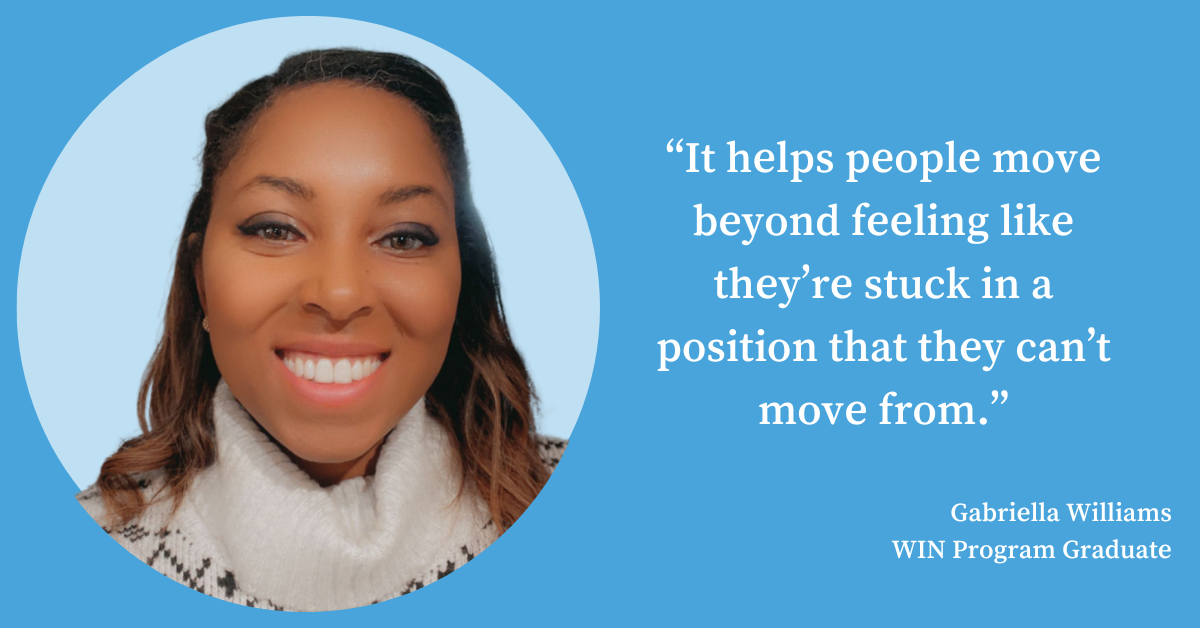 Clients need a referral from a health professional but don’t need a formal diagnosis. The six-month, part-time program is free for adults over 21. Gabriella admits it all seemed a bit daunting at first, but she was also excited and ready to make changes in her life.
Clients need a referral from a health professional but don’t need a formal diagnosis. The six-month, part-time program is free for adults over 21. Gabriella admits it all seemed a bit daunting at first, but she was also excited and ready to make changes in her life.
“Just getting a job would be something that I could look forward to doing,” she says. “Something I could progress in and see a future for myself.”
Structure mimics part-time work
Twice a year, WIN accepts cohorts of 14-18 people that begin in January or July. The time commitment is 10 hours per week split over three days. The small groups are designed to ensure clients are comfortable working with others and also mean counsellors can give more personalized hands-on support. Every part of the program, right down to the timing of classes and meetings, is intentional.
The structure is intended to mimic that of a part-time job, says Maggie Dowling, an Employment Case Counsellor at WIN.
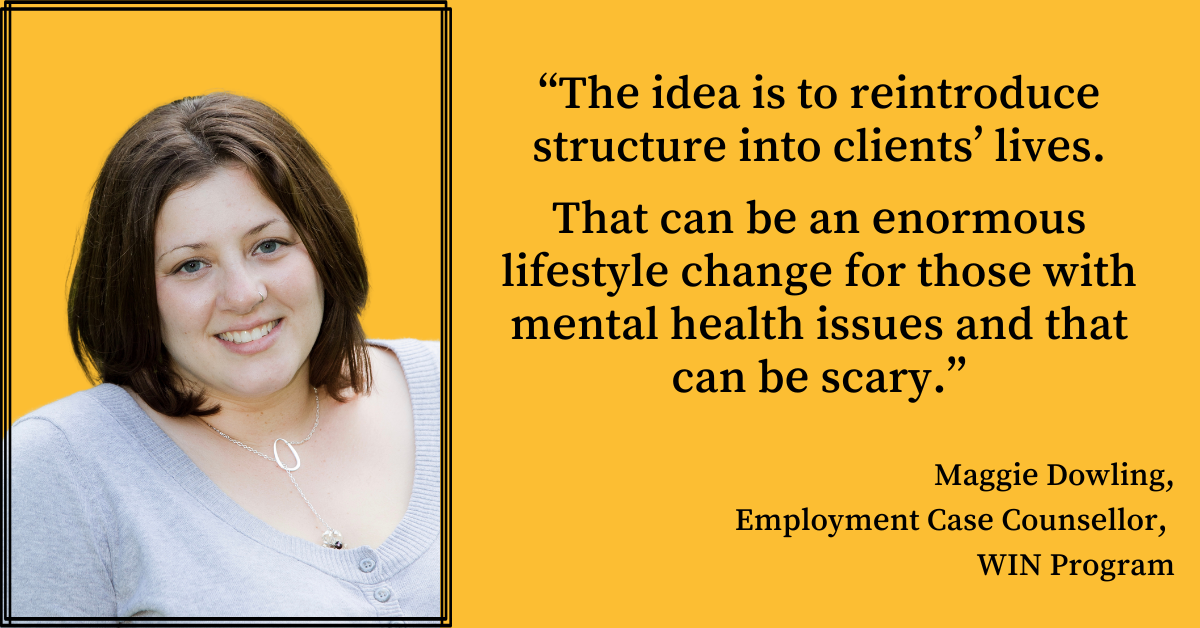 “The idea is to reintroduce structure into clients’ lives,” she says. “That can be an enormous lifestyle change for those with mental health issues and that can be scary.”
“The idea is to reintroduce structure into clients’ lives,” she says. “That can be an enormous lifestyle change for those with mental health issues and that can be scary.”
Several agencies work in partnership with WIN, referring clients and collaborating to provide services tailored to each client’s needs. They include WoodGreen's Counselling & Support Services Team, Michael Garron Hospital's Outpatient Mental Health Unit, Alternatives: The East York Mental Health Counselling Services Agency, Reconnect Community Health Services, and the Centre for Addiction and Mental Health (CAMH).
Finding work that works for clients
The WIN program itself is divided into two halves, with the first three months focused on preparing for a job search. A key part of the process, says Dowling, is the “workplace values assessment”.
“You need to know what you need in a job before you even start your job search,” Dowling explains.
Gabriella says she found this part of the program particularly useful.
“Having them ask me what I wanted in a job and in life really helped me,” she says. “They created a gauge that helped me figure out what my wants and needs are.”
Schedule considers mental health challenges
Clients aren’t required to be looking for a full-time job and, during the first half of the program, are not required to be applying for jobs at all. There is, however, a strict 80 per cent attendance policy, again with the intention of mimicking the workplace.
The WIN program tailors workshops to clients living with mental health issues and include everything from stress management to resume writing as well as job search techniques and interview skills. Classes take place twice a week between 12 p.m. and 3 p.m., a time frame that was intentional and that clients, like Gabriella, appreciate. She points out that many people dealing with mental health issues have erratic sleep schedules and struggle to be up and alert early in the morning. This gradually eases clients into developing time-management and structured days.
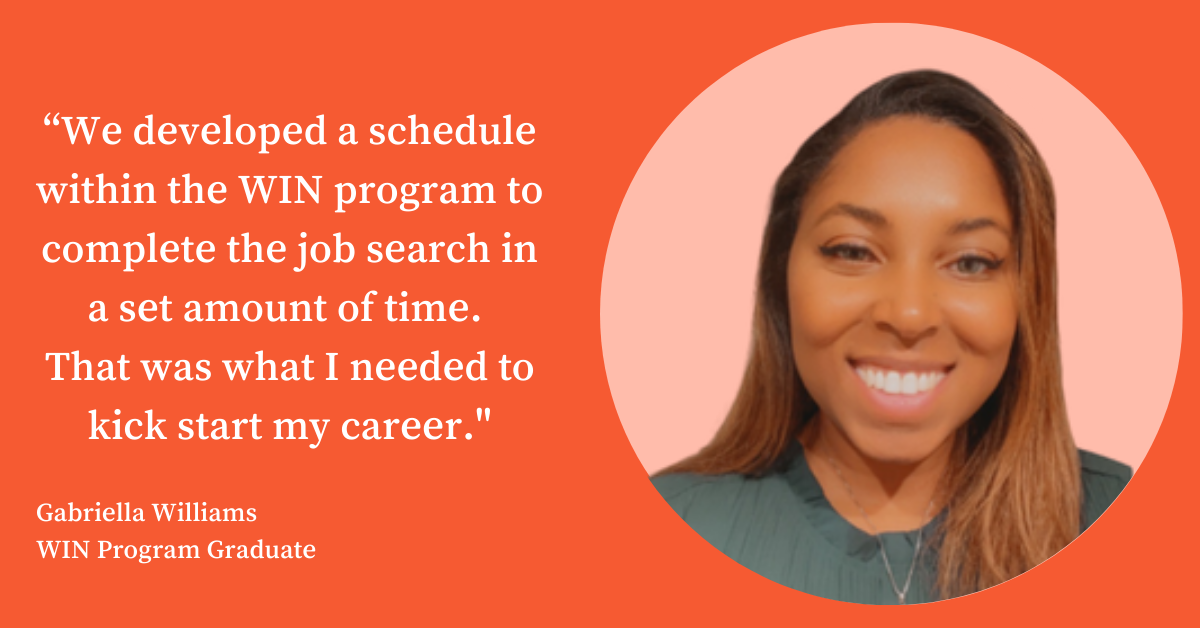
Applying lessons in the real world
Case counsellors also work one-on-one with clients during a weekly session, which continues into the second phase of the program; the job search. That’s when clients take what they’ve learned at WIN and apply it in the real world.
“You have to be brave and put your best foot forward,” says Gabriella.
“We developed a schedule within the WIN program to complete the job search in a set amount of time. That was what I needed to kick start my career. It was the most important part.”
She says WIN requires clients to be applying for jobs in the second half and that accountability kept her focused and motivated. Within six weeks, Gabriella had a job offer and is now working as a contract music teacher, giving lessons through a private music school in Mississauga as well as advancing her own career as a singer-songwriter. Her cancer is now in remission and she is looking forward to the future.
Impressive success rate
Gabriella is indicative of the outstanding success rate at WIN. More than 65 per cent of clients are now doing paid work. Upwards of 95 per cent are either working, studying, doing a co-op or internship or volunteering on the path to paid work. 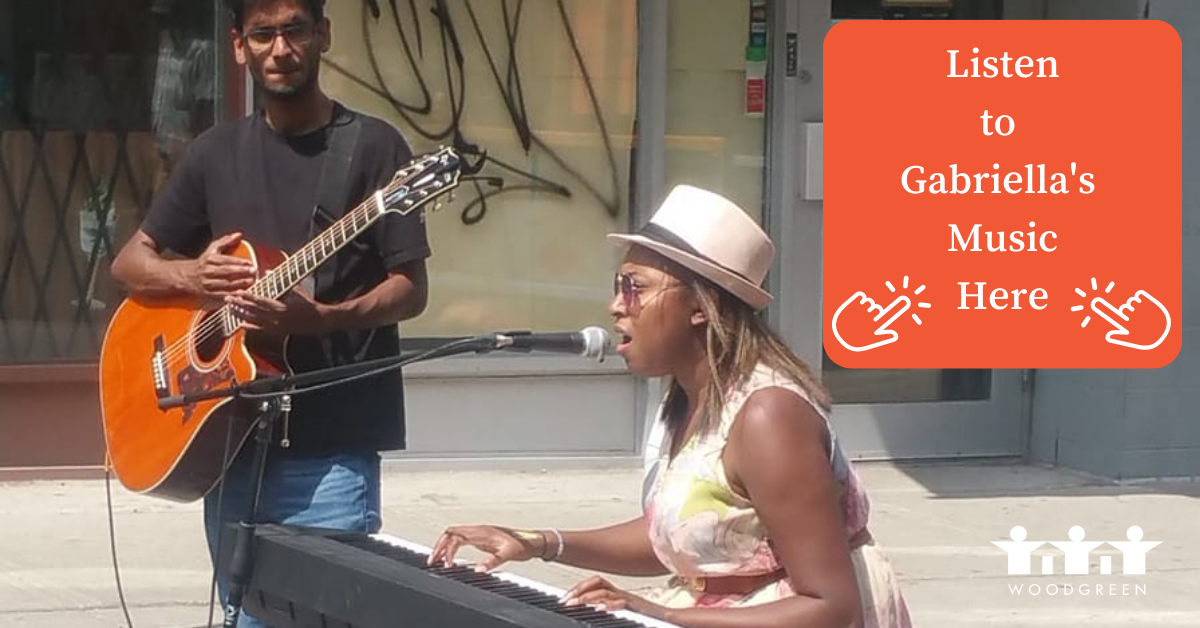
Case counsellor Maggie Dowling is quick to point out that WIN is not a placement agency and the job search is an open one, tailored to clients. It needs to be since the demographic the program serves is wide-ranging.
More than 30 per cent of WIN clients have advanced degrees. The program has seen dentists, urban planners, chemical engineers, policy analysts, registered nurses and those with a PhD.
Focus is getting – then keeping – a job
Gabriella says for those dealing with mental health issues, it can be hard to find a job that will accommodate an employee’s circumstances.
“So when you can make a plan with someone who is supporting you for a way to get a job and improve on your life and your skills, it’s really motivating. It helps people move beyond feeling like they’re stuck in a position that they can’t move from.”
If clients have anxiety and are nervous about interviewing for a job, a WoodGreen counsellor can accompany them to the interview. Once clients have a job, the focus shifts to helping them keep that job.
For Gabriella, the process has been life changing.
“Before, I didn’t know where I wanted to be and I didn’t have that avenue for getting me there,” she says. “Now I have that avenue and I’m reaching my goals. I’m doing much better and I feel great about how far I’ve come.”


